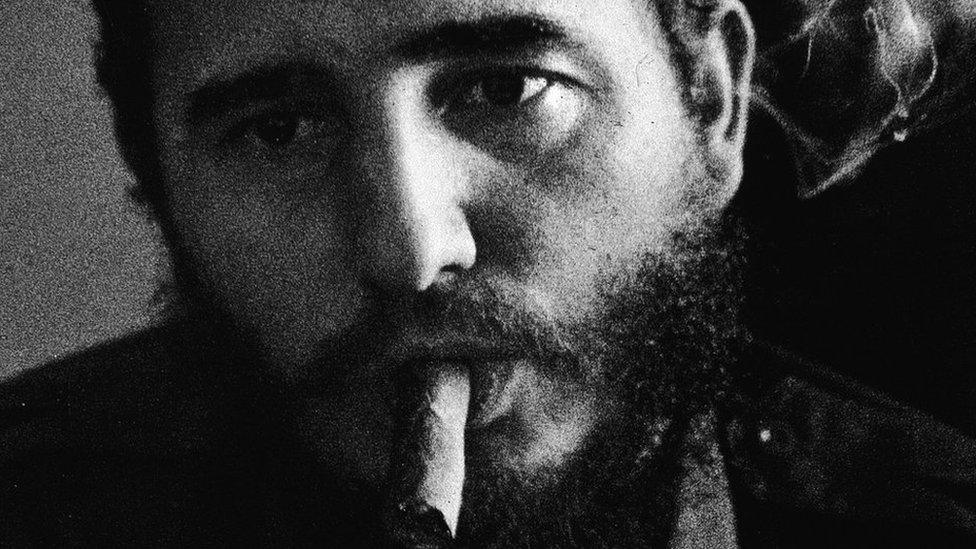Fidel Castro's legacy: 'True to his convictions'
- Published
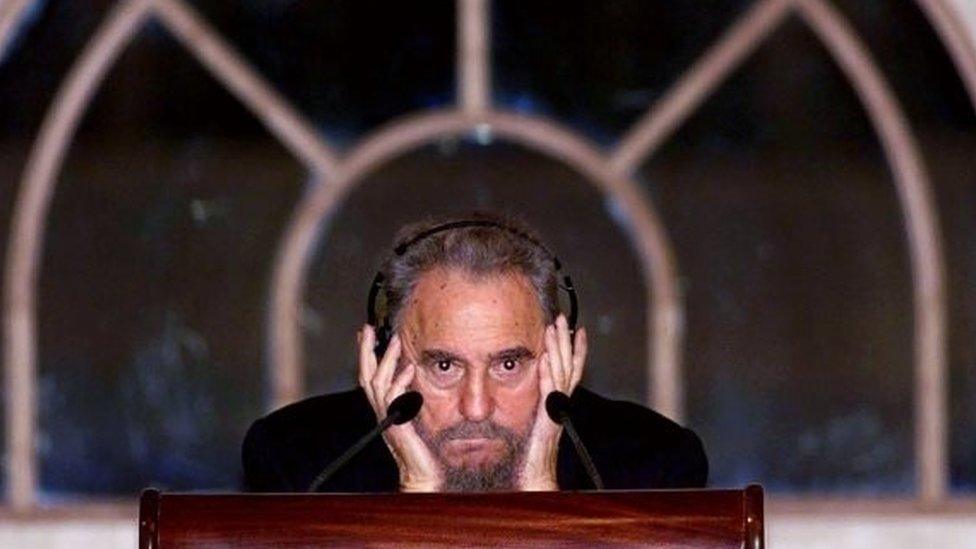
Fidel Castro stayed true to his convictions throughout his time in power
Fidel Castro was a towering presence in Cuba for more than 50 years. Dr Stephen Wilkinson, editor of the International Journal of Cuban Studies, assesses his legacy.
For Cuban poet Nicolas Guillen, there was a direct link between two of the biggest figures in his nation's history.
In a poem from 1977, he wrote: "Lo que Marti prometio, Fidel lo cumplio" ("What Marti promised, Fidel delivered").
Guillen's poem refers to Cuban independence hero Jose Marti, the inspirational figure in Castro's own political life.
Marti promised a Cuba free of US interference and, famously, a republic that would be as he put it: "For all Cubans and the good of all Cubans."
Dream fulfilled?
Castro's legacy will be judged against how successful or not he was in fulfilling that dream.
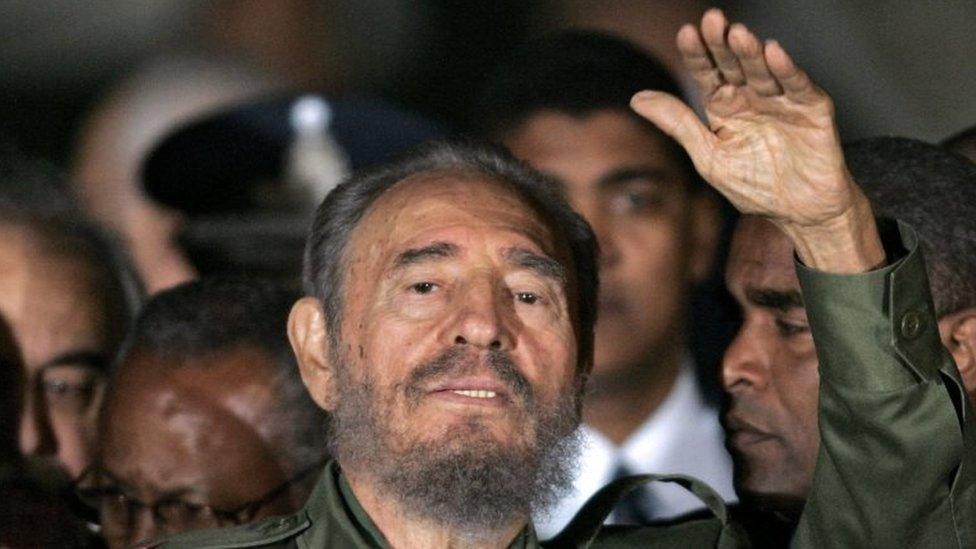
Castro was a towering figure not just because of his height
That Cuba, a nation of only 11 million today (and fewer than six million when Castro came to power) should produce two of the most notable statesmen in Latin American history is an extraordinary feat in itself.
And love him or loathe him, Castro was truly remarkable.
If his seizing of power in a popular revolution at the age of 33 was a startlingly precocious act, his maintenance of his position through five decades, 10 American presidencies (and 638 assassination attempts) is proof of his staying power and determination.
However, in all those years in power, did Castro really fulfil Marti's promise?
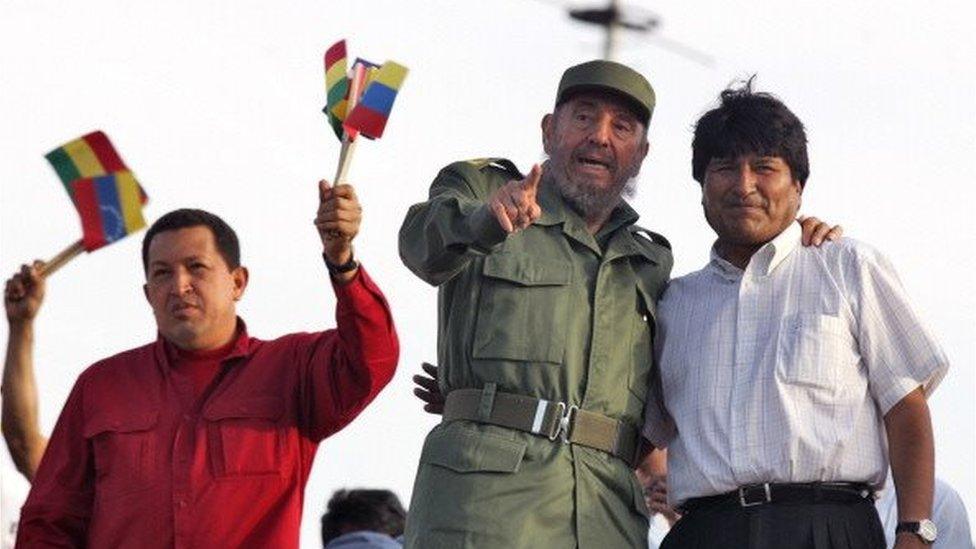
Fidel Castro inspired both Hugo Chavez and Evo Morales
He managed to remove direct US influence on Cuban internal politics and inspired leaders such as Bolivian President Evo Morales and the late Hugo Chavez in Venezuela, who picked up the torch of opposing and resisting US hegemony in the region.
Opponents exported
But like a small moon in the orbit of a much larger planet, the sheer force of economic and political gravity has prevented Cuba from escaping the indirect influence of the US, especially the state of Florida where Castro's enemies hold sway.

Dissents often suffer harassment and are frequently arrested
Castro's revolution remains very much unfinished business. His long years in power perhaps stem in part from the fact that unlike many revolutions, the Cuban one did not lead to a bloodbath.
Castro did not slaughter the Cuban bourgeoisie; there were no gulags.
There were political prisoners, with arbitrary detentions continuing to this day, but Castro was able to export many of his opponents to the US where they built a weighty presence and an almost impenetrable bulwark against a change in Washington's embargo.
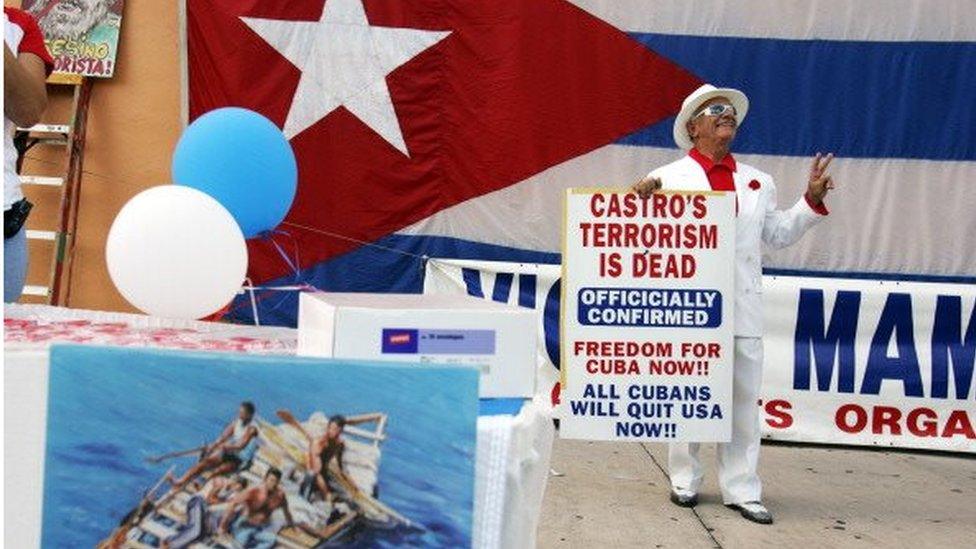
Castro's opponents railed against him from Miami
There are some two million people of Cuban descent now living in the United States. How far Cuba is a country that is therefore for the good of all Cubans is very much a moot point.
Better life?
Undoubtedly, life for most Cubans on the island (and that means the vast majority poor when Castro came to power) improved dramatically under his leadership.

Cuba has prided itself on its medical care
Despite what his enemies say, Cuba under Castro built one of the most impressive public health systems and achieved educational results that are the envy of the developing world.
The statistics prove that Cuba, with a fraction of the per capita income, has infant mortality and longevity rates that rival those of Western Europe. , external
Thousands of medical practitioners graduate in Cuba every year and Cuba sends them to more than 60 countries across the globe to provide aid and assistance.
Cuba has a world class biotech industry that is saving millions of lives through dispensing vaccines and drugs to needy countries at a fraction of the cost that large multinationals would charge.
This scientific advance, generosity and solidarity with the poor and disadvantaged is attributed to Castro's vision - sometimes to the annoyance of Cuban citizens who can often be heard complaining that the help given abroad represents a spending on resources that could be better invested at home.
Influential beyond Cuba
For some, Castro is regarded as a failure because he was unable to develop Cuba's economy to an extent commensurate with its expenditure on health and social welfare.
Though Fidel Castro cannot be wholly to blame for the strains on Cuba's economy, the structural and infrastructural deficiencies that his brother Raul is now addressing were undoubtedly his responsibility.
Possibly, beside his fanatical supporters in Cuba, Fidel Castro will be most fondly remembered in Africa and Latin America where his influence and example were for some inspirational.
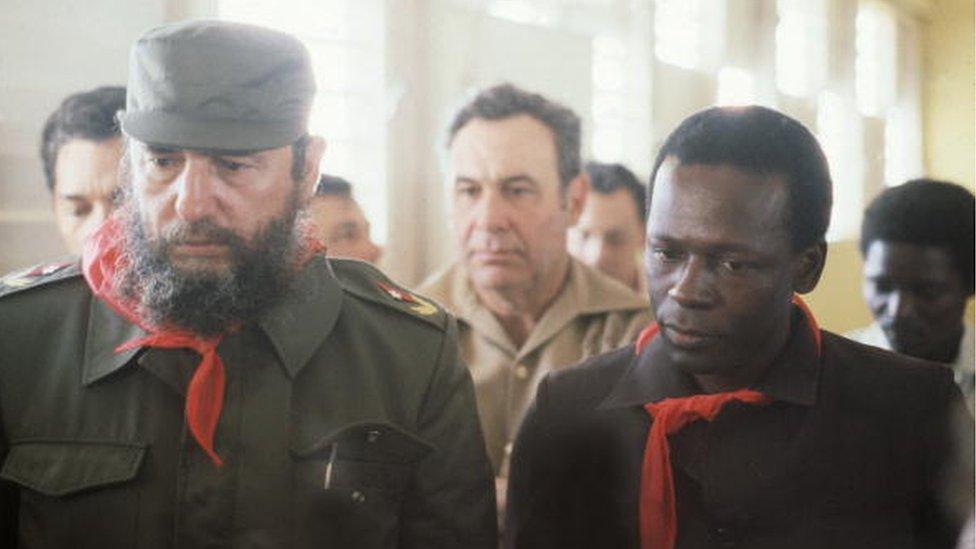
Fidel Castro's involvement in Africa was significant
This is particularly true in southern Africa where Cuba's intervention in Angola in 1975 repelled a South African invasion and ensured that the MPLA, rather than its rival UNITA, took control of the capital Luanda.
More than a decade later, Castro personally masterminded the strategy during the last major confrontation with the South African army at Cuito Cuanavale in 1988.
This battle was part of a chain of events that led to talks between South Africa, Angola and Cuba on the Cuban withdrawal from Angola, the independence of Namibia and the dismantling of apartheid in South African.
Nelson Mandela himself attributed his release from jail and the ultimate defeat of apartheid to the events at Cuito Cuanavale.
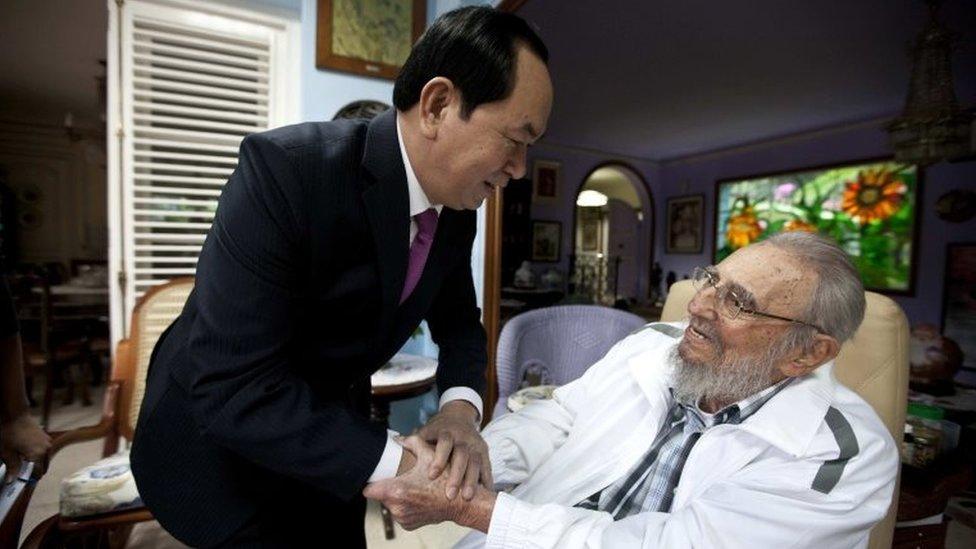
Politicians from around the world continued to visit Castro even after he had handed over power to his brother, Raul
As Chilean poet Pablo Neruda commented, Castro broke the mould of Latin American politicians who promised much and delivered little.
He stood up to the US and refused to back down.
Ultimately, if Castro failed to fulfil Marti's promise completely it was not through want of trying.
Whether one agrees or not with his politics, it has to be accepted that through all his long years in power, Castro stayed true to his convictions to the end.
That, in a politician, is a very rare quality and, I suspect, will be his longest lasting legacy.
31 January 2017: This article has been amended with respect to the outcome of the battle of Cuito Cuanavale
- Published26 November 2016
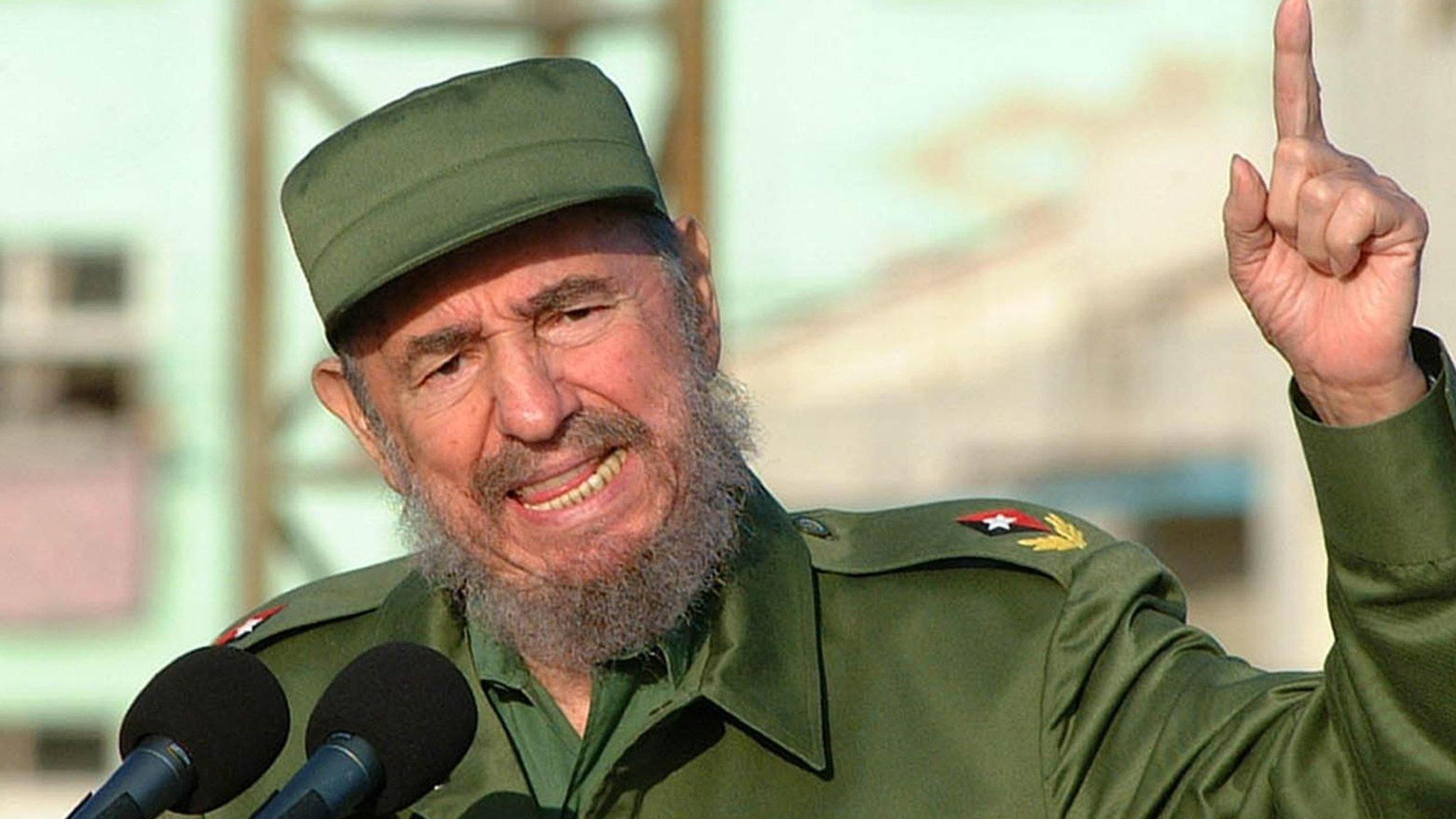
- Published26 November 2016
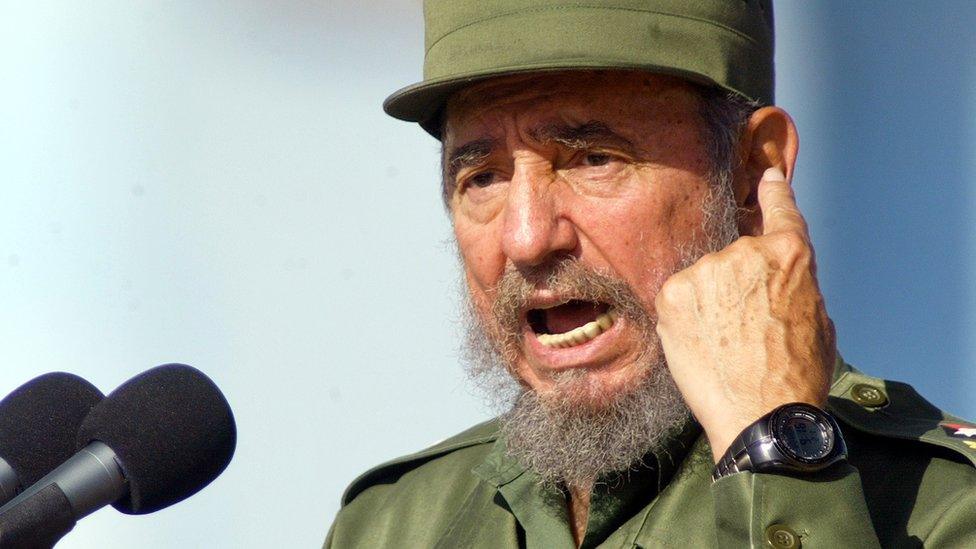
- Published26 November 2016
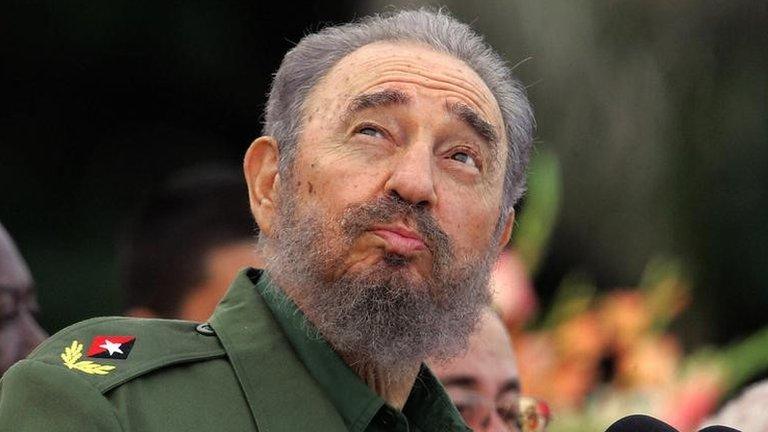
- Published26 November 2016
- Published26 November 2016
